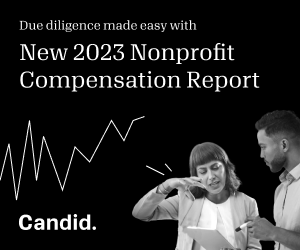Patient funding is crucial for social entrepreneurs to survive the ‘death valley curve’

Data tell us that 90 percent of startups fail. This is not because of a lack of innovation or impact potential but simply a lack of will from investors to stay with early-stage entrepreneurs for the long haul. In the business sector, venture capital has clearly been pulling away from supporting Black businesses, while traditional forms of financing have been historically and still are currently more difficult to obtain. And Black-owned companies are half as likely as white-owned firms to receive the full financing they seek. For early-stage social enterprises, particularly those led by women and Black, Indigenous, and other leaders of color—who statistically have less financial runway—patient forms of capital can be the deciding factor between an organization surviving or dying on the vine.
The term “death valley curve” was initially coined among venture capitalists to describe the critical period during which a startup has depleted its initial invested capital but has not yet generated enough revenue to be self-sustaining. Its impact on social enterprises can be devastating. During this challenging juncture, the organization tries to survive by raising more capital or generating income before the initial investment runs dry. Many social innovators scrape by to keep the impact alive, even as dollars dry up.
We know the arc of justice is long; that timeline is further elongated by the death valley curve. Social change takes time, and traditional measurements of returns are not built to factor in impact. To be sure, there is an immediate impact when these individual enterprises shut their doors. But when it comes to the organizations’ missions—where they often bring untested and important impact solutions to market—their closure has the long-term, reverberating effect of slowing fruitful solutions and closing off new possibilities for generations to come.
For Tanay Tatum-Edwards, a 2019 Echoing Green Fellow and founder and CEO of FreeCap Financial, the sustainability of her organization is critical to ending mass incarceration. FreeCap conducts racial justice investing research and engages financial service providers, empowering them to dismantle the prison-industrial complex. Its Criminal Justice Scorecard provides the only ESG data set available that measures the “criminal justice footprint” of S&P 100 companies, helping investors move their money out of prisons and into enterprises with solutions to end mass incarceration.
The U.S. spends $81 billion a year on mass incarceration. In 2017, the Prison Policy Initiative estimated the actual cost burden on state and federal governments and impacted families at roughly $182 billion. If it takes that much to fund the problem, how much do you think it takes to fix it? And how long will it take?
For emerging social entrepreneurs who are solving big problems with big ideas, both early-stage and follow-on funding are essential. At Echoing Green, emerging leaders are picked for a Fellowship when their ideas are young and fresh—the incubators take a big bet. But when the funding for their fellowships and early-stage innovations ends, who is there to sustain it?
After seed capital funding is obtained, the social entrepreneur is under relentless pressure to continue to secure growth funding to continue the work. For organizations with Black and brown leaders addressing racial equity, the death valley curve is an even steeper climb.
In 2020, hundreds of corporations and foundations pledged to fund racial equity solutions—an estimated $50 billion. Where did the money go? How much went to innovative organizations that support social entrepreneurs? In 2023 these questions are unanswered and they are likely to remain so. Perhaps even more disturbing is the trend of waning support for racial equity work.
At Echoing Green, when we support an early-stage social entrepreneur as an intermediary, we bet on the leader being able to build a viable organization that will create substantive change. We can’t then let the leader and the organization languish after the seed capital is depleted. Follow-on funding is crucial, especially for funding organizations in “the middle” to ensure survival beyond the curve.
Echoing Green Fellowships are awarded to leaders of early-stage social enterprises, who receive $80,000 each in unrestricted seed funding. While that funding enables organizations to launch and gain traction, it is often not enough to sustain them through the death valley curve, when social entrepreneurs need access to flexible, significant, and patient capital to take their work to the next level. To address that gap, in 2021 we initiated the follow-on funding program to help sustain their innovations.
After successfully launching their first report, Tanay and her team at FreeCap wanted to build on their momentum. A follow-on funding grant of $100,000, which she received in the summer of 2022, enabled FreeCap to scale its investment research coverage from 100 to 500 companies, screen over $50 billion in investable assets through a criminal justice lens, and build a web-based platform to disseminate its racial justice investing research. This follow-on funding, awarded at the right time, was essential to the organization’s ability to scale its work to hold the private sector accountable for its role in fueling mass incarceration.
The responsibility is on all of us to ensure that organizations with high-impact potential survive the death valley curve. The communities impacted by their work deserve leaders who are mission-driven, financially and emotionally. If we do not ensure their survival, we rob ourselves of a just and free world. Black leaders will continue to remain hopeful; it is in our DNA. But social entrepreneurs cannot be left to go at it alone. If we are truly committed to tackling systemic racism, solving the death valley curve for Black-founded nonprofits is an often forgotten yet utterly critical piece of the solution.
If it takes X dollars to start a problem, who is to say it doesn't take double, at minimum, to fix it? It’s on us to ensure that the funding is there, when and where it is needed.
Tiffany Thompson is senior director of global partnerships and equity at Echoing Green, where she leads the organization’s inclusive entrepreneurship and racial equity strategy.







The need to donate to historically Black colleges and universities